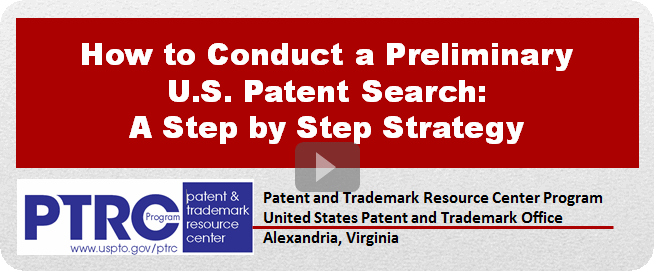Patents
What is a patent & when do I need one?
A patent is an intellectual property right granted by the Government of the United States of America to an inventor “to exclude others from making, using, offering for sale, or selling the invention throughout the United States or importing the invention into the United States” for a limited time in exchange for public disclosure of the invention when the patent is granted. (USPTO)
Three types of patents:
- utility patents may be granted to anyone who invents or discovers a new and useful process, machine, article of manufacture, or composition of matter, or any new and useful improvement thereof.
- design patents may be granted to anyone who invents a new, original and ornamental design for an article of manufacture.
- plant patents may be granted to anyone who invents or discovers and asexually produces any distinct and new variety of plant.
Checklist: Should you patent your invention?
a few questions to ask before filing a patent application
When do you really need a patent?
a few pre-patent considerations from Business Week
Patent Basics
Patents: U.S. Patent & Trademark Office
Process for Obtaining a Patent
flow chart showing the patent application process
Patent Classification
Patents are classified (organized) in the U.S. by a system using a 3 digit class and a 3 digit subclass to describe every similar grouping of patent art. A single invention may be described by multiple classification codes.
Electronic Business Center
Submit patent applications online
Laws, Regulations, Policies & Procedures
Patent Searching
Search for patents @ USPTO
Knowing if an invention is patentable is the first step in obtaining a patent. A thorough search of of all previous public disclosures (prior art) including, but not limited to previously patented inventions in the U.S. should be conducted. A search of foreign patents and printed publications should also be conducted.
Multi-Step Strategy
This is a suggested Multi-Step Strategy for conducting preliminary searches of U.S. patents and published applications using free online resources of the USPTO and its bi-lateral partner, the European Patent Office.
Pat2PDF
This site converts a patent document to an easy to use PDF.
Locating a Registered Patent Attorney
A registered patent attorney can assist with the searching and filing of a patent.
Trademarks
What is a trademark?
A trademark is a word, phrase, symbol, and/or design that identifies and distinguishes the source of the goods of one party from those of others. A service mark is a word, phrase, symbol, and/or design that identifies and distinguishes the source of a service rather than goods. Some examples include brand names, slogans, and logos. The term "trademark" is often used in a general sense to refer to both trademarks and service marks.
Trademark Basics
Trademarks: U.S. Patent & Trademark Office
Trademarks: Oklahoma Secretary of State
Information for registering and searching trademarks with the Oklahoma Secretary of State.
Trademark Filing
Filing forms and information from the U.S. Patent & Trademark Office.
Additional Resources for Filing & Searching Patents, Trademarks & Copyr
Patent & Trademark Depository Library @ OSU
Resources and assistance from the Edmond Low Library at Oklahoma State University.
Copyright
What is copyright?
Copyright is a form of protection grounded in the U.S. Constitution and granted by law for original works of authorship fixed in a tangible medium of expression. Copyright covers both published and unpublished works.
Copyright Basics
U.S. Copyright Office
Find information about registration, licensing of copyrighted works and copyright law. Also access information circulars, publications, and forms.
Copright Act (U.S. Code Title 17)
Contains the federal statutes governing copyright law in the United States.
Frequently Asked Questions about Copyright
The Copyright Office offers introductory answers to frequently asked questions about copyright, registration, and services of the Office.
Filing for Copyright
eCO (electronic Copyright Office)
File a copyright registration for your work through the Copyright Office online system.
Advantages of filing online include: Lower filing fee of $35 for a basic claim (for online filings only); Fastest processing time; Online status tracking; Secure payment by credit or debit card, electronic check, or Copyright Office deposit account; The ability to upload certain categories of deposits directly into eCO as electronic files; Available 24 hours a day, except for routine maintenance every Sunday from 12:00 midnight to 6:00 AM Eastern Time
Preregister Your Work
IMPORTANT: Preregistration is not registration. It is also not necessary for the vast majority of works.
Preregistration is a service intended for works that have had a history of prerelease infringement. It focuses on the infringement of movies, recorded music, and other copyrighted materials before copyright owners have had the opportunity to market fully their products.
2-D barcode Copyright Forms
These forms must be completed on a computer, then printed and mailed.
Registration with paper forms is more expensive than using the eCO.
Copyright Resources on the Web
Copyright Law & Policy
Law & policy information from the U.S. Copyright Office
NOLO Copyright Law
Basic information about copyright, use, registration & licensing
Copyright & Fair Use
This Stanford University site has an emphasis on copyright issues especially relevant to the education and library community, including examples of fair use and policies
Copyright Crash Course
Learn the basics of copyright by taking this crash course courtesy of the University of Texas
Copyright & the Public Domain
A chart defining when a work passes into the public domain
Digital Copyright Tools
A collection of tools from the Copyright Advisory Network
Copyright Clearance Center
Copyright basics and assistance with licensing of copyrighted works
